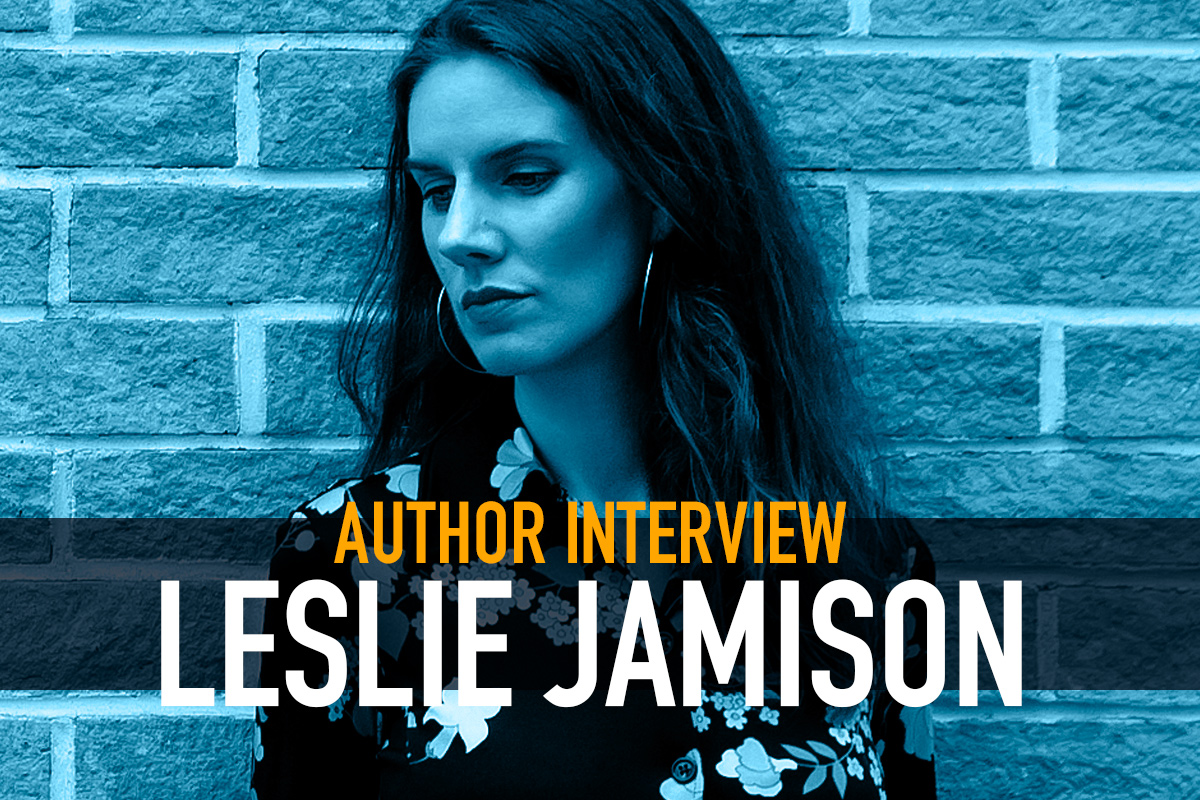
Leslie Jamison’s newest audiobook is made up of 14 essays, some of which focus on subjects like 52 Blue, “the loneliest whale in the world,” while others are more personal, examining romances, marriage, and maternity.
[audiobook isbn=”9781478903260″][/audiobook]
We spoke with Leslie about Make It Scream, Make It Burn, the role of audiobooks in her life, and her experiences narrating her own audiobooks.
Please tell us a little bit about what inspired you to write this book and how this story took shape for you.
This book was born from a collection of fascinations that didn’t necessarily feel related—the loneliest whale in the world, the digital world of Second Life, the aftermath of the Sri Lankan civil war—until I started to see the deep subterranean rivers of fascination that connected them: the ways we are shaped by what we can’t ever hold or touch, and we might call this shaping obsession, and we might call it haunting, and we might call it longing. It was revelatory to think about ordering the essays into a journey—from outward to inward, reportorial to personal—that might help readers understand the emotional experiences that were fueling my journalistic obsessions.
In two sentences or less, what’s something that might surprise Libro.fm listeners about your audiobook?
Not only did I record the audio book myself, but I can say—with absolute truthfulness—that I understood the book in new ways after recording it. And I don’t just mean learning how to pronounce the names of my Croatian interview subjects (!), I mean seeing more clearly how the narrator of these essays was engaged in a continuous seven-year journey: an ongoing reckoning with intimacy, in all its bliss and vexation and surprise.
Have you listened to your own audiobook? If so, what struck you about the narration?
Yes! But only in pieces. It’s always a particular kind of anguish to listen to a recording of yourself speaking—This is what everyone else hears?—but that estrangement from self is also part of what has to happen when you write about yourself anyway. You have to think of yourself as a character, a mysterious voice, a bit of a stranger; someone to whom you are connected, but about whom you cannot be too precious.
Are you an audiobook listener? If so, what are some of your favorite audiobooks?
There have been distinct eras in my life when audiobooks have truly saved me: When I lived in Iowa and was constantly driving to one coast or the other, across the endless miles of midwestern states, and I listened to novels that kept me awake and alive on those open roads. Also last year, when my daughter was a newborn and I would strap her into the carrier across my chest and walk for hours around the park near our home; it was the only way she would sleep. I would listen to books and feel the world returned to me. I particularly loved Lacy Johnson’s wise and wrenching memoir, The Other Side, and Heather Havrilesky’s How to Be a Person in the World, a collection of her “Ask Polly” advice columns, each one a hilarious and profound micro-essay inspired by the dilemmas of a stranger. No coincidence, maybe, that each of these books was read by its author—two women whose voices transmit their deep soul-investment in their words.
What have independent bookstores and/or booksellers meant to you personally and professionally?
I could literally write an entire book in answer to this question! Perhaps someday I will. I can still remember the joy of staying with my aunt when I was a kid and visiting Politics & Prose in DC, getting monster-sized cookies at the underground café and diving into chapter books that seemed to hold entire worlds inside of them. And they did! They did hold entire worlds! And in that sense, an indie bookstore is another order of infinitude: a collection of discrete infinities, each one enclosed between the covers of a book. A chain bookstore is never going to feel like that kind of strange, encompassing planet.
Over the course of my life as a reader, I’ve found refuge and escape and inspiration in independent bookstores—most recently, visiting the resident turtle in the backyard of Brooklyn’s Community Bookstore with my toddler daughter—and over the course of my life as a writer, I’ve found a deep sense of soul-companionship with independent booksellers. I find in booksellers a certain passionate devotion to the sheer grace of books—they ways they transport us, speak to us, speak our inner lives in ways we could not have spoken them ourselves—that helps remind me why I wanted to write in the first place.
[audiobook isbn=”9781478903253″][/audiobook]
Is there anything else you’d like to share with us?
The first time I ever recorded one of my own books—for The Recovering, published in 2018—I had the most extraordinary experience with my audio engineer. It’s a long book, and that meant we spent seven full days together in the studio. It’s a deeply personal book, and that meant he was hearing about highly emotional material from my life—about drinking, recovery, love and its dissolution—in my own voice. The first day when we broke for lunch, we made polite small talk, but over the course of the remaining days, our lunch-time conversations became more and more personal—I started to hear about his own aches, his own loves, his own struggles—as we got deeper and deeper into the recording. It was a perfect microcosm of the way that personal narrative can open up something in the reader (or the listener, or the audio engineer) as well. Those conversations were precious to me. They now feel baked into the texture of the book itself.


I Love author Jamison’s work. Ive switched to libro.fm and so happy I did. Thanks to Leslie & Libro.fm for this audio service and this interview
No problem at all, Dot! We’re glad you enjoyed it.